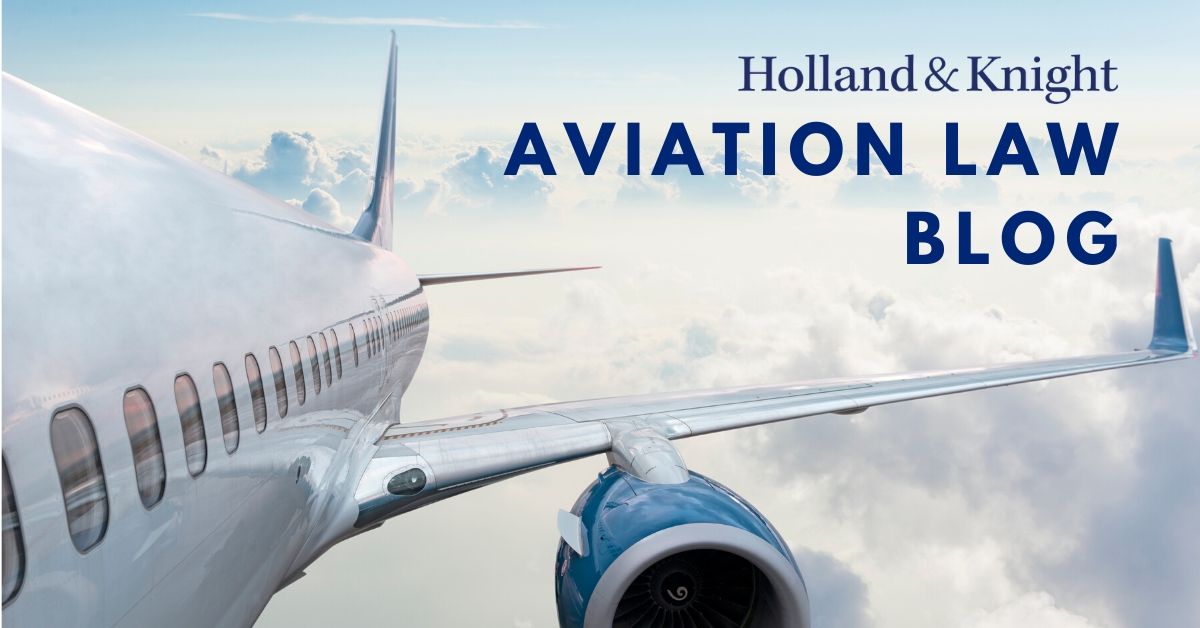DOT Regulations Revise Policies on Carriage of Service Animals, Define Unfair and Deceptive Practices

As the Trump Administration draws to a close, the U.S. Department of Transportation (DOT) has issued two final rules that have long been on the "wish list" of U.S. and foreign carriers.
Final Rule Concerning Service Animals
The first rule dramatically revised DOT's requirements concerning the transportation of service animals and narrowed both the species of animals that carriers are required to transport, as well as the definition of "service animal." The final rule on service animals becomes effective on Jan. 11, 2021. DOT also issued a related press release about the ruling.
Air carriers have transported service animals for many years, and without much fanfare. However, changes to the DOT's disability rules (14 CFR Part 382) made in 2008, which recognized emotional support animals and required carriers to transport them free of charge, led to a surge in demand for these services, as well as widespread concern that passengers were seeking to characterize their pets as emotional support animals to avoid the cost of their transport. There were frequent news stories about passengers trying to claim that certain exotic animals were service animals, as well as mishaps when these pets became disruptive during flights.
Driven in part by recognition of consumer abuse and in part out of safety concerns, DOT has issued a final rule which narrows the scope of carrier obligations. Highlights of the final rule include: limiting the definition of a service animal to only dogs, limiting passengers to no more than two service animals aboard an aircraft, allowing carriers to treat emotional support animals as pets, and allowing carriers to require service animals be harnessed, leashed or tethered while on board an aircraft. In addition, air carriers may now require advance notice before being required to transport service animals and can require that the animal fit on its handler's lap or within its handler's foot space on the aircraft.
The final rule establishes two DOT forms that carriers may require passengers to remit to the carrier as a condition of transportation. First is the Service Animal Air Transportation Form, which covers the health, behavior and training of the service animal. Second is the Service Animal Relief Attestation Form, which carriers may require on flights that are eight hours or longer.
The final rule also allows carriers to charge passengers traveling with service animals for damage caused to the aircraft by the animals, provided they charge passengers without disabilities for similar repairs or damage.
Narrowed Definition of Unfair and Deceptive Practices
The second final rule attempts to both codify and narrow what constitutes an "unfair and deceptive" practice under 49 USC 41712, a statute that serves as the foundation for almost all of DOT's consumer protection regulations. The underlying statute was modeled on the Federal Trade Commission's authority to curb and sanction unfair commercial practices. Airlines had long argued that DOT's enforcement policies had extended well beyond the intended scope of the law, and sanctioned practices that misled or injured consumers. The Final Rule on Unfair and Deceptive Practices takes effect on Jan. 6, 2021.
Under the new regulation:
- A practice is "unfair" to consumers if it causes or is likely to cause substantial injury, which is not reasonably avoidable, and the harm is not outweighed by benefits to consumers or competition.
- A practice is "deceptive" to consumers if it is likely to mislead a consumer, acting reasonably under the circumstances, with respect to a material matter. A matter is material if it is likely to have affected the consumer's conduct or decision with respect to a product or service.
- Proof of intent is not necessary to establish unfairness or deception.
This final rule also establishes a hearing procedure DOT must follow when it engages in discretionary rulemaking, a requirement that will lengthen the process and will likely raise the bar for taking new regulatory action. The rule also codifies the ability of airlines to be heard and present evidence when confronted by DOT with enforcement action. The ability to be heard and present evidence was already standard enforcement practice at DOT.
Conclusion
Overall, the new Biden Administration is expected to take a different, more aggressively pro-consumer stance than the Trump Administration. Although newly promulgated regulations are subject to the Congressional Review Act, it would take an affirmative vote of both houses of Congress to rescind these new rules, a measure that is unlikely if the Senate remains under Republican control.
